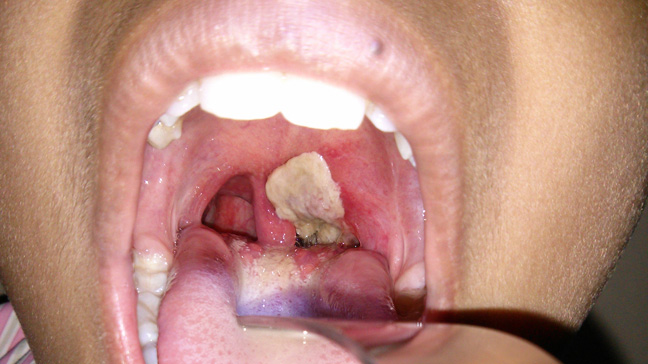Diptheria, also known as thrush, is a very common disease affecting infants. Diptheriasis has no cure as it is caused by an infection of the gut and not the bloodstream. Diptheria can affect an infant at any age, though the disease is more prevalent in newborns than adults.
The symptoms of diptheriasis are a chronic burning or itching sensation in the mouth and throat, and a feeling of soreness and weakness in the arms and legs. Diptheria can also affect the mouth, which causes an unusual taste. The condition commonly affects both sexes. Diptherial mouth sores are a common symptom. A baby that has contracted diptherial mouth sores may cough and feel extremely uncomfortable.
Diptheria can spread from one individual to another through sneezing and coughing the contaminated respiratory droppings
An infected person is still contagious for up to 2 weeks after being infected. In rare cases, diptherial bacteria can be transferred through direct contact or by simply touching contaminated clothing.
Children in Schools can get infected from contaminated toys. The bacteria found in the respiratory droppings of infants and children can easily be passed on to someone else. Diptherians are highly infectious and should not be handled. Dipthersia can also be passed via sexual intercourse. It can also be passed via sharing of food or drink items.
Diptheriasis can cause the walls of the child's body to become thick and hard, which can cause pain. This discomfort, along with the diarrhea caused by the condition, should be treated immediately. Dipthersia may also affect an infant's brain and cause seizures. Babies with diptheriasis should be checked by their doctors as soon as possible. If these symptoms are not treated, they may lead to permanent damage to the nerve cells.
Dipthersia does not cause any permanent damage to the body. If left untreated, it will eventually go away on its own. However, there are medications and treatments available to slow down the progress of the disease. If your child has been diagnosed with diptheriasis, treatment options are discussed with you by a doctor or nurse.

If your child has severe symptoms, you may want to consider dialysis or surgery
There are several prescription drugs that can be prescribed to control the symptoms of diptheriasis. These medications help to reduce fever, increase the immune system, and kill the bacteria responsible for the disease.
Newborns that have diptheriasis have been given medications to help them recover faster and keep the pain to a minimum. Your newborn may need to stay in an incubator or should not be left alone for too long during the first two months of life.
Some prescription drugs may be used to reduce the length of time that your baby is in the incubator. This will ensure that your baby receives all of the oxygen and nutrients he or she needs during the period of the incubator. If your baby should have a problem with breathing, he or she may need to remain in the incubator for longer periods. The length of the incubator stay will depend on how long it takes for the medication to be effective.
In some cases, prescription drugs are administered at the hospital. If this is the case, your doctor will discuss your newborn's medications with you. before deciding which medication is best.
Antibiotics can also be used. This can be used as a preventative measure. Antibiotics kill bacteria that causes diptheria, but they do not eliminate the bacteria responsible for causing the condition. However, they do help to decrease the duration and severity of the disease.
You may also want to discuss how to prevent diptheria with your doctor. A good diet and exercise regimen are necessary in order to avoid developing a long-term infection. You can also help prevent complications by avoiding those foods that may have bacteria on them.
Leave a Reply